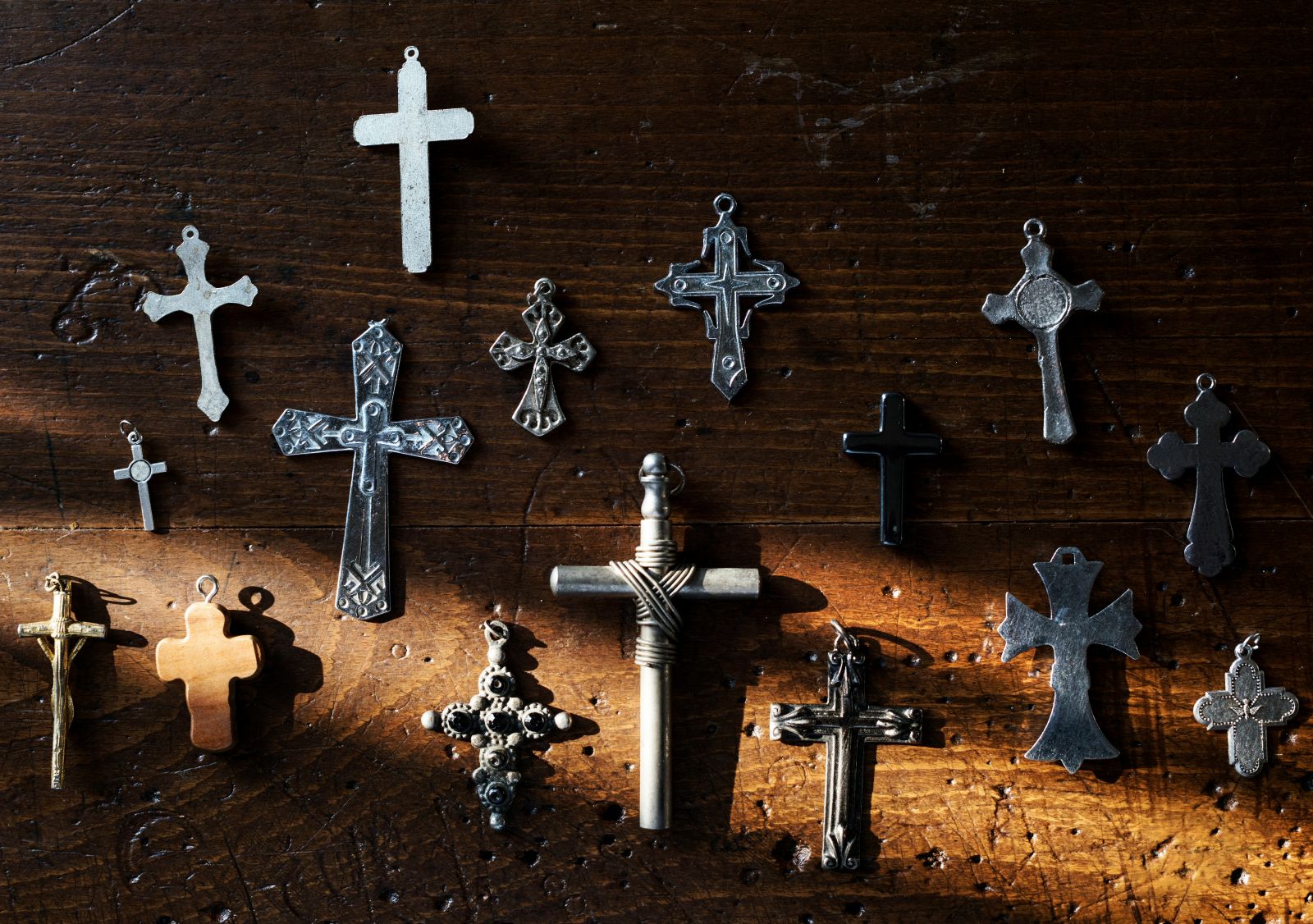Worn Out by the Journey

September 10, 2025
by
Jane Aseltyne, IHM (she/her)
Suffering is all too common, but it is not the only thing that defines us. Today, Jane Aseltyne, IHM reflects on the meaning of the cross, God’s compassionate solidarity, and the hope of the resurrection that flows through our lives.
September 14, 2025: Feast of the Exaltation of the Holy Cross, Year C
Numbers 21:4b–9
Psalm 78:1bc–2, 34–38
Philippians 2:6–11
John 3:13–17
Worn Out by the Journey
A reflection by Jane Aseltyne, IHM
A few weeks ago, there was a story in the news about the memorial for the victims of the Pulse nightclub shooting in 2016. The memorial, a crosswalk painted with rainbow colors to honor the 49 dead, had been painted over under the cloak of night. This act reverberated throughout the queer community, with many LGBTQIA+ folks feeling like it was yet another instance where there was a concerted effort to try to erase our existence.
A friend who was visiting Florida shortly after this happened Facetimed me from Pulse. She showed me images of people gathering peacefully, using sidewalk chalk to create art that speaks of hope, visibility, love, and resistance.
After our conversation, I sat down to write this reflection. Whenever I am preparing to write on the scripture readings, I sit down with the text and pay attention to words, phrases, or images that draw me in. Right away, the first verse from our first reading today immediately resonated, “With their patience worn out by the journey, the people complained against God and Moses…”
I sat there a moment—the conversation with my friend still with me. I began to imagine the experiences the Israelites were going through. While I have not directly experienced life in exile, I felt like I could relate to the feeling of having no patience left and being worn out by the journey. The sadness I felt about the situation at Pulse weighed on me. And there have been many times in recent months that I have complained to God about the state of our world.
When we look around us, it is no surprise that we may be feeling frustrated or angry. Our patience may be wearing thin due to the current political climate, and we see the rise of suffering in all facets of life: continued discrimination against queer persons, families being ripped apart due to unjust immigration policies, and natural disasters occurring more frequently due to climate change. The list of issues feels endless.
The suffering we see around us is real and unjust. Yet it is not the only thing that defines our stories. We see in our second reading today that God comes to us in human form in the person of Jesus Christ. Jesus emptied himself to be in solidarity with us in our suffering, taking on the human experience of pain and rejection so that when we are struggling in our own lives, we know that we have a God who understands what we are going through.
Theologian M. Shawn Copeland talks about Jesus’ crucifixion as the ultimate act of solidarity with those made poor and oppressed, those persecuted by empire. She says that “Christian theology must stand at the foot of the cross of the Jewish Jesus of Nazareth, the Christ of God.” Though Jesus’ death was abhorrent and violent, it was an act of God coming close to us in our suffering.
Solidarity, Copeland says, is more than just a feeling; it requires compassionate action. In the gospel today, John tells us that God so loved the world that God comes alongside us in our suffering. God did not send Jesus to condemn the world, but Jesus came so that the world might be saved through his death and resurrection. In turn, the action that is required of us is to go out and be the hands and feet of Jesus in the world—preaching compassion, standing with the marginalized, and welcoming all to the table.
However, it is hard to look at the cross as an instrument of death and see hope and victory. It is difficult to use the word “exaltation” when referring to the cross, since it brings up images of brutality and rejection. Yet, herein lies the paradox. The cross reflects the human experience of suffering at the hands of empire and oppressive systems that do not count the human cost. But it is also a reminder that death is not the end.
We see moments of resurrection happening in our lives. The people gathered outside of Pulse in solidarity with those who died and their families. The strangers coming from various parts of the country to show up for the queer community in Florida. These acts of compassionate action speak to the greater love of God and the vision God has for the world. We may be tired and worn out from the journey, but we hold onto the knowledge that death and violence do not get the final say. Resurrection hope pulses through our actions and our words.

Sr. Jane Aseltyne, IHM holds an MA in Systematic Theology and Spirituality from the Catholic Theological Union at Chicago. Her master’s thesis entitled, “Beyond the Binary: Expanding Understandings of the Imago Dei,” seeks to develop a more inclusive understanding of what it means to be made in the image and likeness of God, particularly concerning gender and sexual orientation.





.svg)


.svg)
